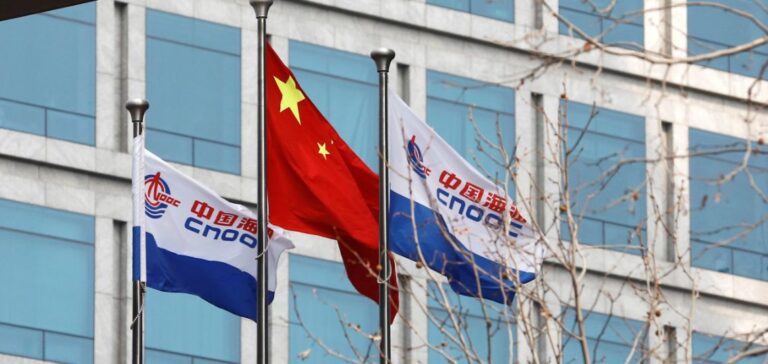CNOOC Limited, an oil and gas group listed in Hong Kong and Shanghai, announced an 11.4% increase in net profit attributable to shareholders for the 2024 financial year, reaching RMB137.9bn (€17.9bn). This result reflects concurrent growth in both reserves and production, along with a reduction in unit costs. The company proposed a final dividend of HK$0.66 per share, bringing the annual total to HK$1.40, up 12% compared to the previous year.
Record production and new offshore capacity
In 2024, CNOOC Limited’s net hydrocarbon production reached 726.8mn barrels of oil equivalent, representing a 7.2% year-on-year increase. This growth was driven by domestic projects such as the Bozhong 19-6 field and international operations, including the Payara project in Guyana, which contributed to a 10.8% increase in production outside China. The company also reinforced its proved reserves, which totalled 7.27bn barrels of oil equivalent, up 7.2% year-on-year, with a reserve life maintained at ten years.
Strategic expansion and infrastructure investments
CNOOC Limited secured new petroleum contracts for ten exploration blocks in Mozambique, Brazil and Iraq. In China, significant discoveries such as Longkou 7-1, Qinhuangdao 29-6 and Huizhou 19-6 were made. The development of new offshore infrastructure also marked the year, notably with the commissioning of the cylindrical FPSO Haikui-1 and the Haiji-2 platform, the tallest jacket platform in Asia. These facilities enhanced operational efficiency and reduced extraction costs.
Cost control and operational efficiency
The all-in cost per barrel of oil equivalent was US$28.52, down 1.1% year-on-year. Capital expenditure totalled RMB132.5bn, mainly allocated to project development and production optimisation. The company also commissioned several smart oilfields, such as Shenhai-1 and Qinhuangdao 32-6, while further automating its offshore platforms.
Energy initiatives and local engagement
The company launched several low-carbon energy projects, including a 16-megawatt floating wind power platform and the use of 760mn kilowatt-hours of green electricity. The Wushi 23-5 field, China’s first offshore oilfield designed with environmental criteria, is now operational. In addition, CNOOC Limited continued construction of two offshore carbon capture and storage (CCUS) bases in the Bohai Sea and Hainan.
In 2024, the group provided over 22,000 jobs across more than 20 countries and implemented community development programmes, notably in Africa. Its local training programme in Uganda was recognised in the Fifth Global Solicitation on Best Poverty Reduction Practices Campaign.






















